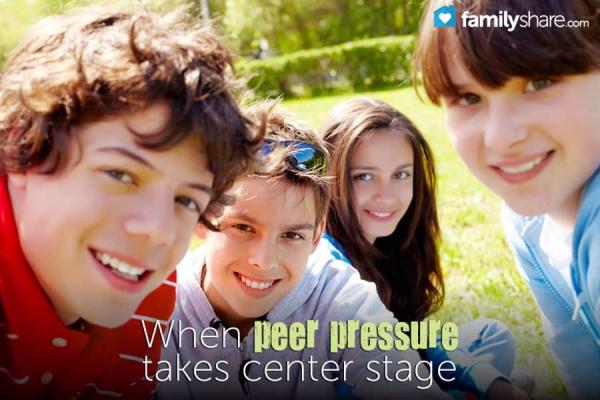
As your child ages, the voices of their peers become more and more influential in their decision making process. This peer pressure can be either a positive or negative influence in their life. When your teen is facing the negative influences of peers there are three important things parents should avoid:
Avoid the situation
Your child will at some point in their life face peer pressure. Whether this pressure is good or bad can depend largely on the group of friends, the situation, and any particular event. As a parent, you need to prepare your child for this possibility and the many scenarios that may present themselves. If you avoid the situation and fail to talk about it, you are leaving your child at a disadvantage. A child that has never talked about specific peer choices will be left unprepared. On the other hand, if the parent brings up important peer choices such as, smoking, drinking, partying, sex and other teen concerns and work with your teen to determine how they can respond to these situations, they will be much better prepared to follow through with proper words and actions in the situation.
Write it off as a phase
If you notice your child's appearance or attitude changing, don't write it off as a phase. Yes, children will go through phases and changes as they learn to discover who they are, but ignoring even small subtle changes can be detrimental to your child. Building a relationship with your child where you can easily bring up subjects such as, appearance changes or attitude changes will help you to determine if what you are noticing is simply your child trying a new way of expressing themselves or if they are facing pressure from peers to act, dress, or associate in a specific manner. Being in tune with your child and talking to them will help you to guide them out of negative situations.
Be inflexible
While it's important to have established rules in your home, there are times when you must be aware how they are impacting your child. There are times in your child's life that peer pressure can be a good thing. When it challenges your child to excel at an activity or academic class these types of peers can be encouraging. In fact, those friends you might think are a negative influence can have a positive impact on your child. When he or she is confident enough to defend their decisions, they may become a better influence for other friends. If you are inflexible when it comes to appearance, actions, and choices; having a "my way or the highway"� attitude with your child could send them quickly "to the highway." It's better to have an open line of communication to discuss changes you notice and understand them, instead.
Navigating the positive and negative effects of peer pressures can be difficult. If you have established open lines of communication and are there to talk to and support your child, you can be a guiding influence that will help them find the best path possible and enjoy the support of other peers in positive ways.

